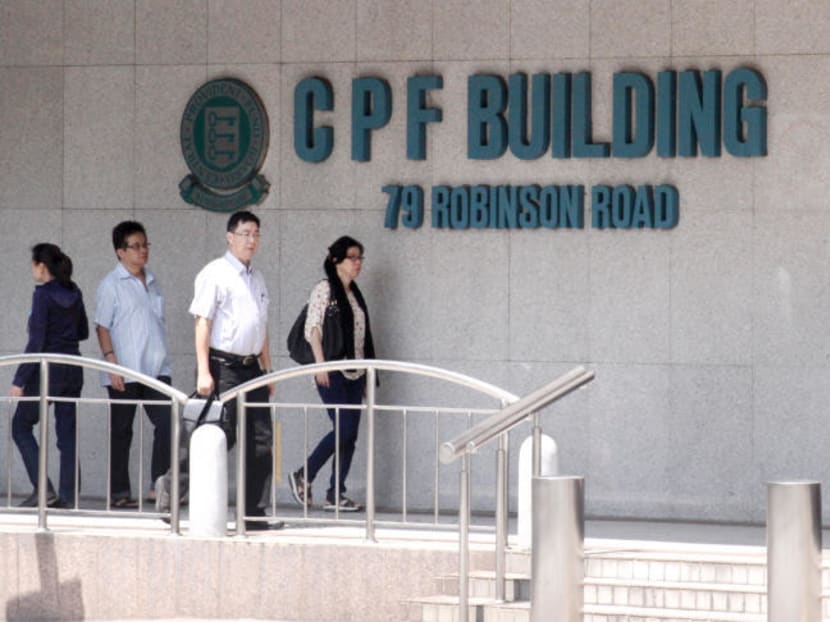S$420m in CPF arrears recovered from employers
SINGAPORE — About S$420 million in Central Provident Fund (CPF) contributions owed to more than 250,000 workers was recovered from errant employers last year, a 43 per cent spike from 2012, despite the authorities flagging the issue last year as a concern and warning of heavier penalties, which came into effect this year.
SINGAPORE — About S$420 million in Central Provident Fund (CPF) contributions owed to more than 250,000 workers was recovered from errant employers last year, a 43 per cent spike from 2012, despite the authorities flagging the issue last year as a concern and warning of heavier penalties, which came into effect this year.
Of the sum collected from cases closed last year, S$406.6 million consisted of late payments recovered from an average of 3,600 employers each month, the CPF Board said yesterday.
In cases of underpayment or non-payment — where S$16.6 million in arrears was recovered — most of the errant 3,900 employers were from small and medium enterprises (SMEs) in the security, cleaning, and food and beverage industries, which observers whom TODAY spoke to said might reflect the struggles that SMEs have with cash flow and the manpower crunch.
In a statement, the CPF Board attributed the spike to the result of a step-up in enforcement efforts and an increase in awareness of employment rights among workers.
On the enforcement front, the CPF Board increased its number of inspections from 500 to 5,000 each year.
Referring to the WorkRight campaign — launched in 2012 to improve compliance with the Employment Act and the CPF Act — Mr Ng Hock Keong, director of Enforcement Division at the CPF Board, said: “This has enabled us to take swifter action against errant employers, as more workers are now coming forward to check their CPF entitlements.”
For instance, two part-time employees at a minimart phoned the WorkRight hotline to report that their employer had not paid their CPF contributions since 2004. Upon investigation, the CPF Board recovered more than S$20,000 in unpaid CPF contributions for the pair, as well as more than S$80,000 in CPF contributions owed to more than 20 of the minimart’s employees.
The number of errant employers hauled to court also edged up last year — 202 were convicted for late payment, while 41 were convicted of non-payment and underpayment, compared with 180 and 39, respectively, in 2012. Among these employers is Cellcity, a telecommunications company that was fined S$9,000 and S$9,600 on two occasions for a total of 12 counts of late payment. Another company, RPM Media, was fined S$6,000 for four counts of non-payment.
Employers who break rules under the CPF Act now face harsher penalties. As of January, first-time offenders may be fined up to S$5,000 — double the previous maximum fine — or jailed up to six months, or both, while subsequent offenders may face fines of up to S$10,000 or jailed up to a year, or both.
Speaking to TODAY, Association of Small and Medium Enterprises President Kurt Wee said the cleaning and security industries, in particular, were squeezed between a manpower crunch and “tremendous price competition at the customer level”, as service buyers tend to go for the lowest prices.
Concurring, Member of Parliament (Chua Chu Kang GRC) Zaqy Mohamad, who sits on the Government Parliamentary Committee for Manpower, said SMEs were also more likely to face cash-flow problems when payments do not come on time, compared with larger companies, which have bigger financial reserves.
Mr Zaqy also pointed out that informal working and pay arrangements were common in the cleaning, security and F&B industries, which can lead to confusion over whether CPF contributions are due. “Workers themselves may not be aware of their rights … so these are things that we should educate workers on,” he added.
With employers in urgent need of workers amid tight labour market conditions, some may also choose to give in to those who prefer to take home more cash instead of receiving CPF contributions, even if this means breaking the law. “This puts employers in a very difficult position because if (they) don’t accede to this, (they) cannot get the labour,” Mr Wee said.







